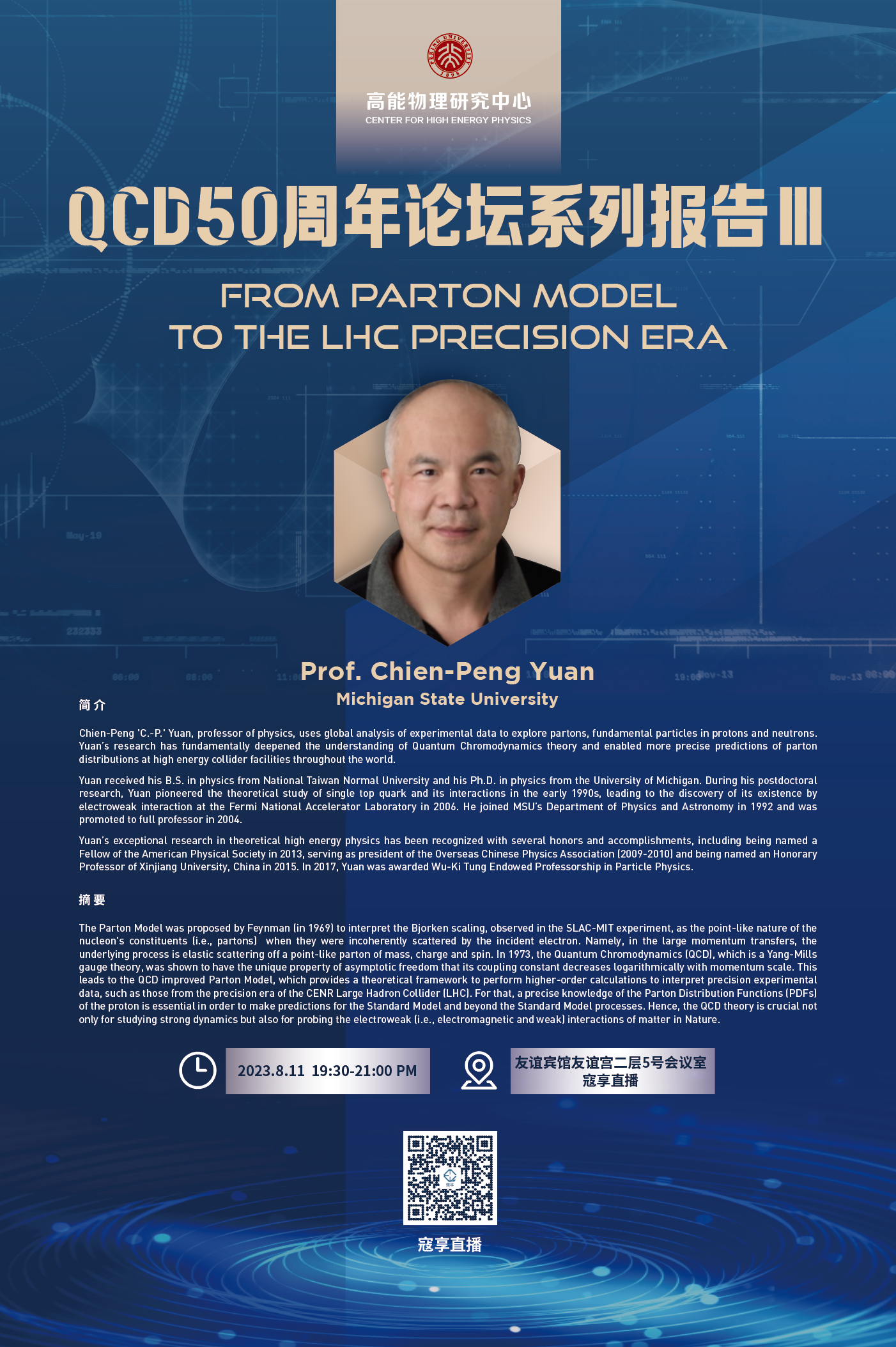北京大学高能物理研究中心
QCD50周年论坛系列报告-3
From Parton Model to the LHC precision era
报告人:Prof. Chien-Peng Yuan (Michigan State University)
时间:2023年8月11日 19:30-21:00(北京时间)
地点:友谊宾馆友谊宫二层5号会议室
寇享直播:https://www.koushare.com/lives/room/961867
Abstract:
The Parton Model was proposed by Feynman (in 1969) to interpret the Bjorken scaling, observed in the SLAC-MIT experiment, as the point-like nature of the nucleon's constituents (i.e., partons) when they were incoherently scattered by the incident electron. Namely, in the large momentum transfers, the underlying process is elastic scattering off a point-like parton of mass, charge and spin. In 1973, the Quantum Chromodynamics (QCD), which is a Yang-Mills gauge theory, was shown to have the unique property of asymptotic freedom that its coupling constant decreases logarithmically with momentum scale. This leads to the QCD improved Parton Model, which provides a theoretical framework to perform higher-order calculations to interpret precision experimental data, such as those from the precision era of the CENR Large Hadron Collider (LHC). For that, a precise knowledge of the Parton Distribution Functions (PDFs) of the proton is essential in order to make predictions for the Standard Model and beyond the Standard Model processes. Hence, the QCD theory is crucial not only for studying strong dynamics but also for probing the electroweak (i.e., electromagnetic and weak) interactions of matter in Nature.
Bio:
Chien-Peng 'C.-P.' Yuan, professor of physics, uses global analysis of experimental data to explore partons, fundamental particles in protons and neutrons. Yuan’s research has fundamentally deepened the understanding of Quantum Chromodynamics theory and enabled more precise predictions of parton distributions at high energy collider facilities throughout the world.
Yuan received his B.S. in physics from National Taiwan Normal University and his Ph.D. in physics from the University of Michigan. During his postdoctoral research, Yuan pioneered the theoretical study of single top quark and its interactions in the early 1990s, leading to the discovery of its existence by electroweak interaction at the Fermi National Accelerator Laboratory in 2006. He joined MSU’s Department of Physics and Astronomy in 1992 and was promoted to full professor in 2004.
Yuan’s exceptional research in theoretical high energy physics has been recognized with several honors and accomplishments, including being named a Fellow of the American Physical Society in 2013, serving as president of the Overseas Chinese Physics Association (2009-2010) and being named an Honorary Professor of Xinjian University, China in 2015. In 2017, Yuan was awarded Wu-Ki Tung Endowed Professorship in Particle Physics.

